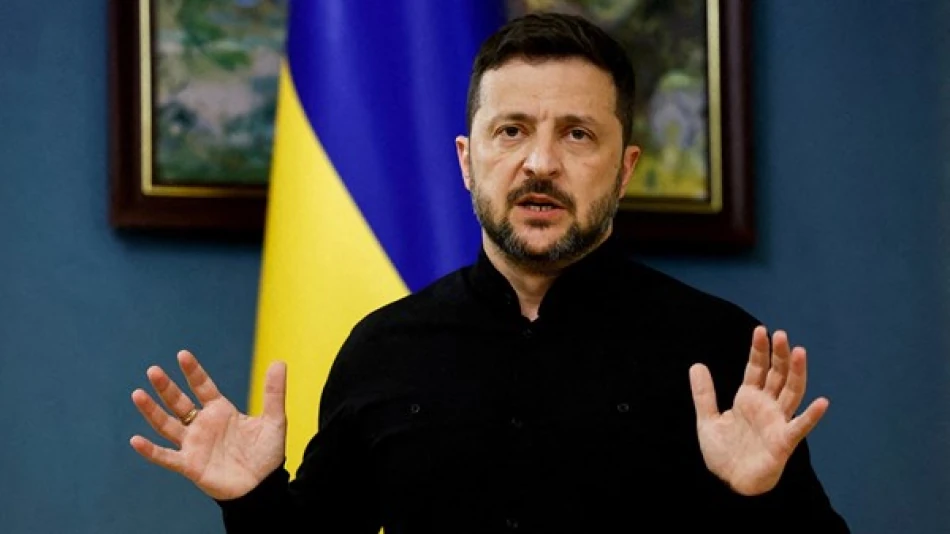
Zelenskyy Expresses Gratitude to Europe for Support Amid Trump-Putin Summit
Europe Pushes Back Against Trump's Ukraine Peace Plan as Putin Summit Looms
Ukrainian President Volodymyr Zelenskyy has secured crucial European backing in his campaign to participate in Donald Trump's planned summit with Vladimir Putin, as major EU powers reject any Ukraine settlement negotiated without Kyiv's involvement. The diplomatic standoff highlights growing tensions between Trump's bilateral approach to ending the conflict and Europe's insistence on multilateral solutions that protect Ukrainian sovereignty.
Trump's Alaska Summit: A Risky Gamble
Trump announced plans for an August 15 summit with Putin in Alaska, marking a significant shift toward direct US-Russia negotiations over Ukraine's future. The choice of Alaska—historically symbolic as former Russian territory sold to the US—sends a pointed message about territorial arrangements, particularly given Trump's suggestion that any deal would involve "exchanging some territories for the benefit of both sides."
This approach mirrors Trump's preference for strongman diplomacy, reminiscent of his previous summits with North Korea's Kim Jong Un and his warm relationship with Putin during his first presidency. However, the exclusion of Ukraine from initial planning represents a dramatic departure from the Biden administration's "nothing about Ukraine without Ukraine" principle.
European Resistance Crystallizes
Seven major European powers—Britain, France, Germany, Italy, Poland, Finland, and the European Commission—issued a rare joint statement Saturday explicitly rejecting Trump's bilateral framework. Their declaration that "the path to peace cannot be determined without Ukraine" represents a coordinated pushback against American unilateralism on European security matters.
Strategic Implications for NATO
The European stance reflects deeper concerns about Trump's approach to transatlantic relations and collective security. By demanding "strong and credible security guarantees" for Ukraine, European leaders are essentially insisting on NATO-level commitments that could outlast any single US administration.
This mirrors similar European resistance during Trump's first term when allies worried about American reliability on Article 5 commitments and burden-sharing arrangements.
Putin's Calculated Rejection
Putin's dismissal of Zelenskyy's participation—claiming conditions for such a meeting haven't been met "unfortunately"—reveals Moscow's preference for dealing directly with Washington. This strategy echoes Cold War-era Soviet diplomacy, when Moscow consistently sought to marginalize European voices in superpower negotiations.
The Russian approach aims to recreate a bipolar negotiating structure reminiscent of Reagan-Gorbachev summits, potentially sidelining both Ukrainian agency and European security interests.
Market and Geopolitical Consequences
European defense stocks have rallied amid uncertainty about continued US military support, while energy markets remain volatile as traders assess potential changes to sanctions regimes. The prospect of territorial concessions has particularly unsettled Eastern European markets, where memories of previous Russian territorial acquisitions remain fresh.
The Counter-Proposal Strategy
European officials confirmed they've developed an alternative framework to Trump's approach, though details remain classified. This represents unprecedented European diplomatic coordination on Ukraine, suggesting Brussels and major capitals are preparing for potential US disengagement from the conflict.
The success of this European initiative will likely determine whether the transatlantic alliance can maintain unity on Ukraine or fractures along traditional lines of American unilateralism versus European multilateralism. For Zelenskyy, European support provides crucial leverage against being sidelined in negotiations that will determine his country's future.
Most Viewed News

 Layla Al Mansoori
Layla Al Mansoori






